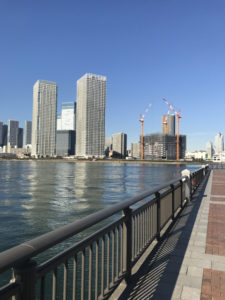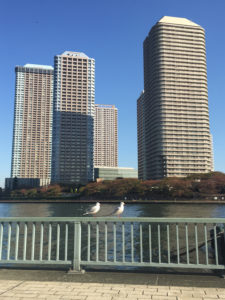
No More Flipping: Tokyo’s Chiyoda Ward Bans Resales for 5 Years
Introduction: The First of Its Kind
On July 18, 2025, Tokyo’s Chiyoda Ward took a groundbreaking step in Japan’s real estate policy: it formally requested cooperation from the Real Estate Companies Association of Japan to curb speculative condominium transactions. This marks the first time a Japanese local government has directly asked the real estate industry to limit short-term resale activity due to housing price inflation and supply pressure.
While Tokyo has seen massive capital inflows and price surges in recent years, this move signals a turning point in the policy landscape—especially for investors and developers.
Key Measures Being Requested
According to the official request, Chiyoda Ward is asking developers and industry players to:
-
Introduce a 5-year resale prohibition clause for buyers in condominiums developed through urban redevelopment projects.
-
Ban multiple unit purchases by a single name within the same building.
-
Collaborate with the national government to impose stricter taxation, including raising the capital gains tax on short-term condo resales.
In fact, Chiyoda Ward has made clear its intention to formally petition the national government to revise tax laws accordingly. This would mark a significant national policy shift if implemented, moving Japan closer to countries like Singapore and Canada, where non-resident or short-term speculative ownership is heavily regulated.
At the same time, the Tokyo Metropolitan Government is also planning to implement similar resale restrictions on redevelopment projects involving public land. It has begun urging developers participating in city-led projects to introduce mechanisms that discourage speculative purchasing and prioritize actual owner-occupiers.
These aligned efforts between ward, metropolitan, and (potentially) national authorities suggest that Japan’s real estate investment landscape may be entering a new era of regulatory scrutiny.

Why Now? The Economic Context
The real estate data tells the story.
According to the Real Estate Economic Institute:
-
Greater Tokyo’s average price for new condominiums (Jan–Jun 2025) reached ¥89.58 million, up 17% year-on-year.
-
In the Tokyo 23 Wards, the average surged to ¥130.64 million, a 20% jump and continuation of the post-2023 trend of surpassing the 100 million yen mark.
This rapid escalation is driven by:
-
Limited land supply for residential development in central wards
-
Skyrocketing construction material costs
-
Labor shortages and rising labor costs
-
Strong domestic and foreign demand, particularly in the ultra-luxury segment
As a result, end-user buyers—especially younger families and local residents—are increasingly being priced out.
Implications for Investors and Developers
While the move by Chiyoda Ward is not (yet) a legal regulation, the request carries significant weight. Given Japan’s tradition of soft regulation via “administrative guidance” (行政指導), such requests often become de facto standards—especially when backed by political and media pressure.
Developers may start including resale restrictions voluntarily, especially in high-profile projects with public land or redevelopment incentives.
Foreign and domestic investors should now carefully assess:
-
Holding period requirements
-
Clauses in contracts restricting resale
-
Potential increases in short-term capital gains tax (especially if national measures follow)
For large developers and institutional investors, this may be a manageable policy adaptation. But for individual buyers looking to “flip” newly built units in Tokyo’s high-end market, the environment is shifting toward longer-term holding.
Looking Ahead: A Tokyo-Wide or National Trend?
Tokyo Metropolitan Government is reportedly considering similar measures for city-led redevelopment projects. If more wards follow Chiyoda’s lead, the result could be a Tokyo-wide policy shift toward prioritizing owner-occupancy and discouraging purely financial real estate speculation.
At the national level, increased taxation on short-term capital gains for residential property may also be tabled for discussion—especially as income inequality and affordability become hotter political issues.

Conclusion: A New Era for Real Estate Investors in Japan
Japan’s real estate market—once considered lightly regulated and investor-friendly—is clearly shifting. While Tokyo remains one of the world’s most stable and liquid urban markets, new rules and expectations are emerging, particularly for short-term buyers and speculative capital.
Whether you are an institutional player, a family office, or an individual investor, it is essential to understand not just where to invest, but also how to stay compliant and strategically aligned with the evolving legal and policy environment.
At Yamamoto Property Advisory, we specialize in helping foreign investors navigate these complexities with confidence—whether you are exploring luxury assets in central Tokyo or developing a long-term investment strategy in Japan.
Ready to invest wisely in Japan?
Let us help you stay ahead of the curve.
Contact Us directly for:
-
Strategic portfolio consultation
-
Legal & tax guidance in light of regulatory changes
-
Off-market luxury listings in Tokyo’s most exclusive areas
-
Deal structuring and risk mitigation
Source: Nikkei article

#TokyoRealEstate
#JapanProperty
#CondoInvestment
#HousingPolicy
#RealEstateRegulation
#ChiyodaWard
#SpeculativeBuying
#UrbanRedevelopment
#LuxuryRealEstateTokyo
#ForeignInvestorGuide
Toshihiko Yamamoto is the founder and principal broker of Yamamoto Property Advisory, a distinguished real estate brokerage in Tokyo that specializes in luxury residential and investment properties for an international clientele. His firm caters to discerning investors seeking premier properties for personal use and income-generating whole buildings for investment purposes.A licensed realestate broker in Japan, Mr. Yamamotoholds an MBA from Bond University in Australiaand a Certified Commercial Investment Member (CCIM) designation from the CCIM Institute in the United States. His extensive international experience, having lived abroad in Australia and the United Kingdom, equips him with a nuanced understanding of global real estate trends and the unique needs of foreign investors.With over two decades of experience in international business, Mr. Yamamoto has successfully conducted business with clients from more than 20 countries. As a seasoned property investor himself, he provides informed guidance to his clients as they navigate the intricacies of the Japanese real estate market to secure optimal investments.Discover more in his book, “The Savvy Foreign Investor’s Guide to Japanese Properties: How to Expertly Buy, Manage, and Sell Real Estate in Japan,” available on Amazon, iBooks, and Google Play.Connect with us through social media on Instagram, WhatsApp, and LINE for further information and expert assistance.



About the book
Amazon.com Link


